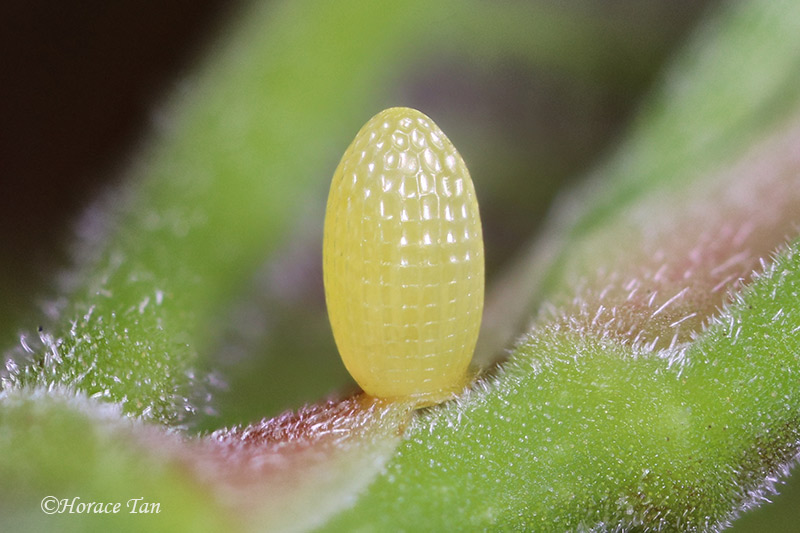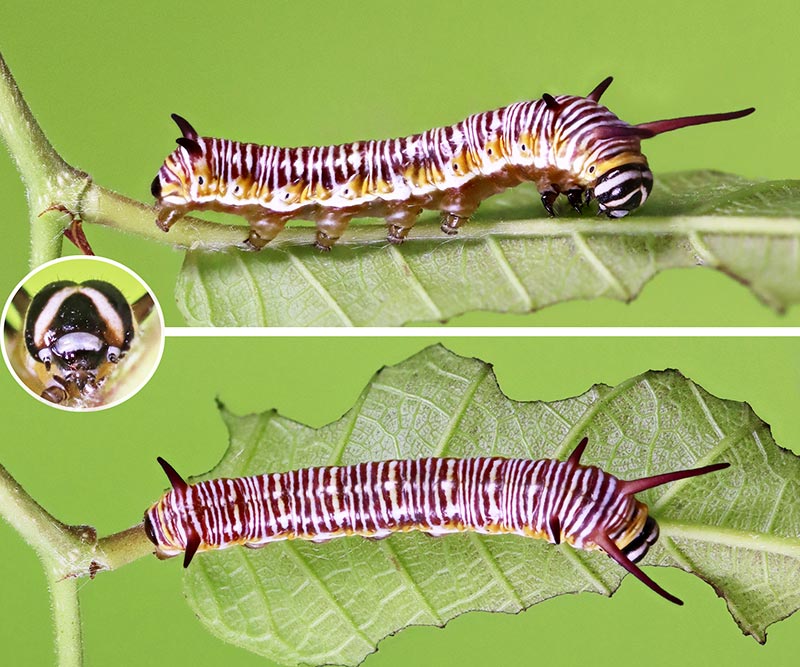Euploea tulliolus ledereri
Dwarf Crow
| Family: | Nymphalidae |
| Subfamily: | Danainae |
| Genus | Euploea |
| Species: | tulliolus |
| Subspecies: | ledereri |
| Common Name: | Dwarf Crow |
| Wingspan: | 60-70 mm |
| Status: | Endangered |
| Life History: | complete |
| Extant in countries: | •Singapore •Malaysia |
| Hostplants: |
Description
The Dwarf Crow has forewings which are deep blue with a few pale blue or whitish submarginal spots. The undersides are brown with the usual Euploea white spotting along the wing margins.
Habitat & Habits
The Dwarf Crow is the smallest of the Euploea species and was recently (in 2002) rediscovered on the offshore island of Pulau Ubin, to the north of Singapore island. Earlier assumed to be extinct in Singapore, this species was observed in a patch of dried Heliotropium plants, which is a favourite attractant of Danainae butterflies.
A number of specimens were circling the Heliotropium plants and this individual was so determined to get its fill of the alkaloids on the plant that it refused to fly off, even when disturbed.
It is not known if the species existed on Pulau Ubin all this while or had recently somehow flown over from nearby Malaysia. Earlier surveys on Pulau Ubin have not registered the existence of this species. However, we hope that the species will continue to thrive on the small island.
Other Observations
To be detailed.
Early Stages
To be detailed.
Further Reading
To be detailed.

 Bobby Mun.jpg)
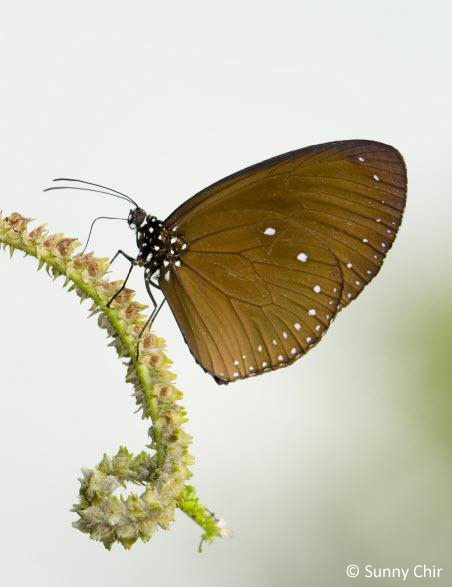
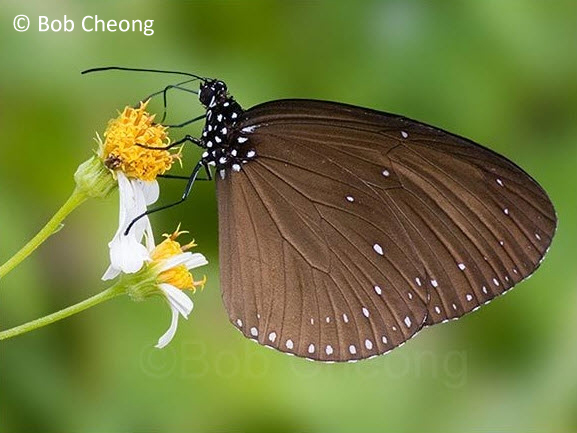
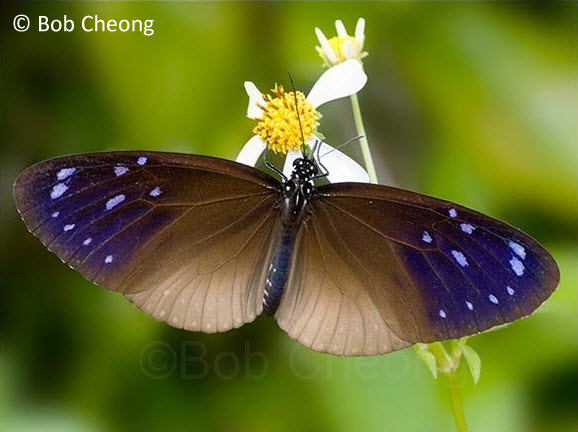
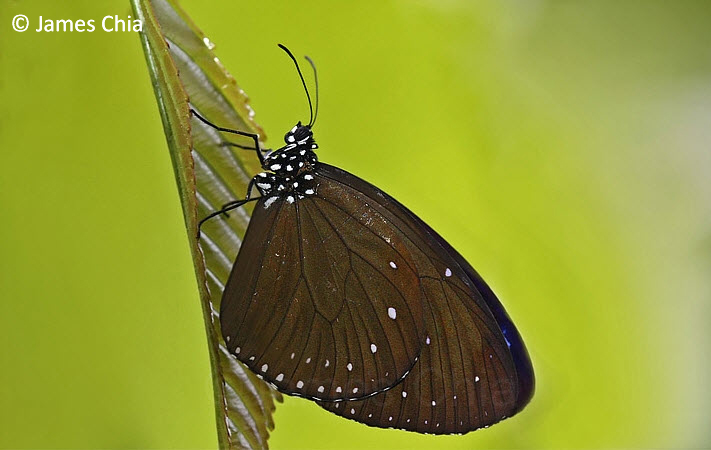
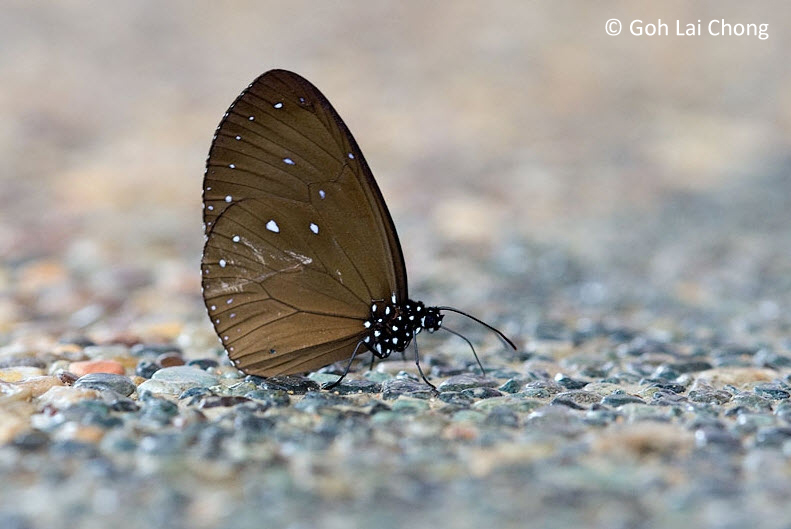
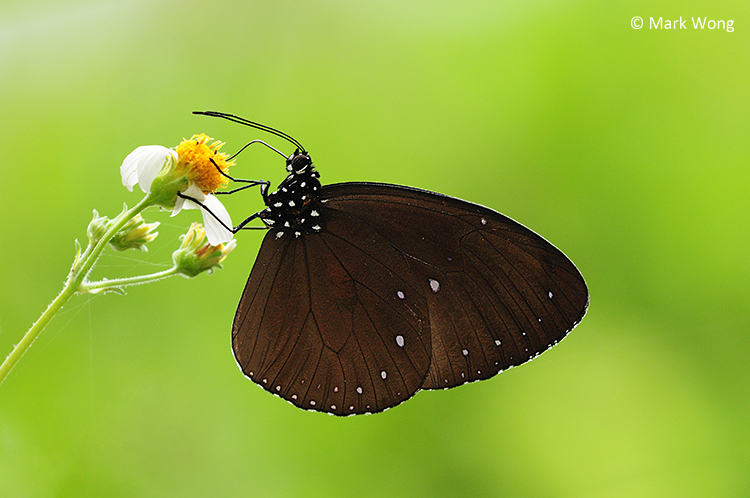
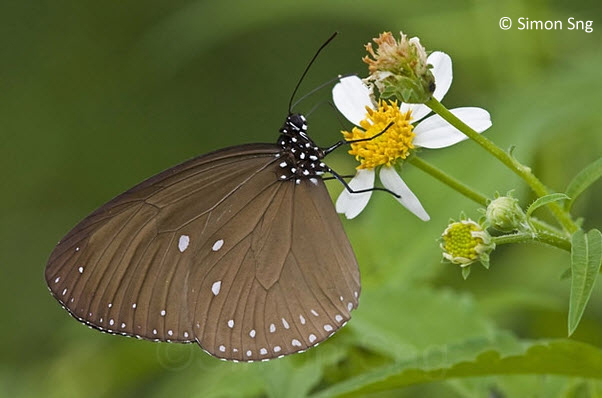
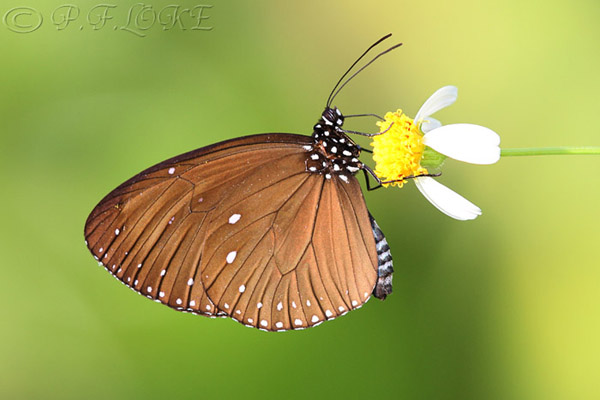
 Bobby Mun.jpg)








